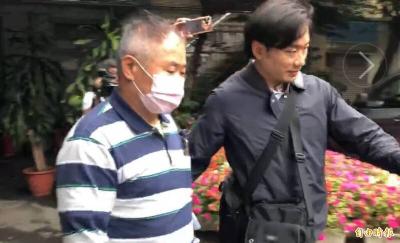The inclusion of additional diseases to the list of conditions for which Taiwanese can decide in advance not to have their lives prolonged under the Patient Right to Autonomy Act (病人自主權利法) took effect on Monday, the Ministry of Health and Welfare said.
The act, the first of its kind in Asia, gives people the right to decide in advance to have a doctor terminate or withhold life-sustaining treatment, nutrition and hydration if they are terminally ill, in an irreversible coma, in a permanent vegetative state, or suffering from severe dementia.
It also applies to people with diseases considered “unbearable” or “incurable,” as well as 11 diseases considered “rare” by the act, the ministry added.
The new additions are: multiple system atrophy, Duchenne muscular dystrophy, hereditary epidermolysis bullosa, Huntington disease, limb-girdle muscular dystrophy, nemaline myopathy, spinocerebellar ataxia, spinal muscular atrophy, amyotrophic lateral sclerosis, cystic fibrosis and primary pulmonary hypertension.
The ministry publicized the list in November for public discussion before the changes took effect on Monday.
According to ministry data, 11,317 people have signed up for advance healthcare directives, which it said gives them more control over end-of-life decisions.
Department of Medical Affairs Director-General Shih Chung-liang (石崇良) said that every March, the ministry would review the list with people with rare diseases, medical associations, and legal and other experts to determine if other rare diseases should be added.
The act, created to “respect patient autonomy in healthcare [and] safeguard their rights to a good death,” was completed in 2015 and promulgated on Jan. 6 the following year.

Taiwan would benefit from more integrated military strategies and deployments if the US and its allies treat the East China Sea, the Taiwan Strait and the South China Sea as a “single theater of operations,” a Taiwanese military expert said yesterday. Shen Ming-shih (沈明室), a researcher at the Institute for National Defense and Security Research, said he made the assessment after two Japanese military experts warned of emerging threats from China based on a drill conducted this month by the Chinese People’s Liberation Army’s (PLA) Eastern Theater Command. Japan Institute for National Fundamentals researcher Maki Nakagawa said the drill differed from the

A fugitive in a suspected cosmetic surgery fraud case today returned to Taiwan from Canada, after being wanted for six years. Internet celebrity Su Chen-tuan (蘇陳端), known as Lady Nai Nai (貴婦奈奈), and her former boyfriend, plastic surgeon Paul Huang (黃博健), allegedly defrauded clients and friends of about NT$1 billion (US$30.66 million). Su was put on a wanted list in 2019 when she lived in Toronto, Canada, after failing to respond to subpoenas and arrest warrants from the Taipei District Prosecutors’ Office. Su arrived at Taiwan Taoyuan International Airport at 5am today on an EVA Air flight accompanied by a

A 79-year-old woman died today after being struck by a train at a level crossing in Taoyuan, police said. The woman, identified by her surname Wang (王), crossed the tracks even though the barriers were down in Jhongli District’s (中壢) Neili (內壢) area, the Taoyuan Branch of the Railway Police Bureau said. Surveillance footage showed that the railway barriers were lowered when Wang entered the crossing, but why she ventured onto the track remains under investigation, the police said. Police said they received a report of an incident at 6:41am involving local train No. 2133 that was heading from Keelung to Chiayi City. Investigators

The Keelung District Prosecutors’ Office today requested that a court detain three individuals, including Keelung Department of Civil Affairs Director Chang Yuan-hsiang (張淵翔), in connection with an investigation into forged signatures used in recall campaigns. Chang is suspected of accessing a household registration system to assist with recall campaigns targeting Democratic Progressive Party (DPP) city councilors Cheng Wen-ting (鄭文婷) and Jiho Chang (張之豪), prosecutors said. Prosecutors yesterday directed investigators to search six locations, including the Chinese Nationalist Party’s (KMT) Keelung office and the residences of several recall campaign leaders. The recall campaign leaders, including Chi Wen-chuan (紀文荃), Yu Cheng-i (游正義) and Hsu Shao-yeh